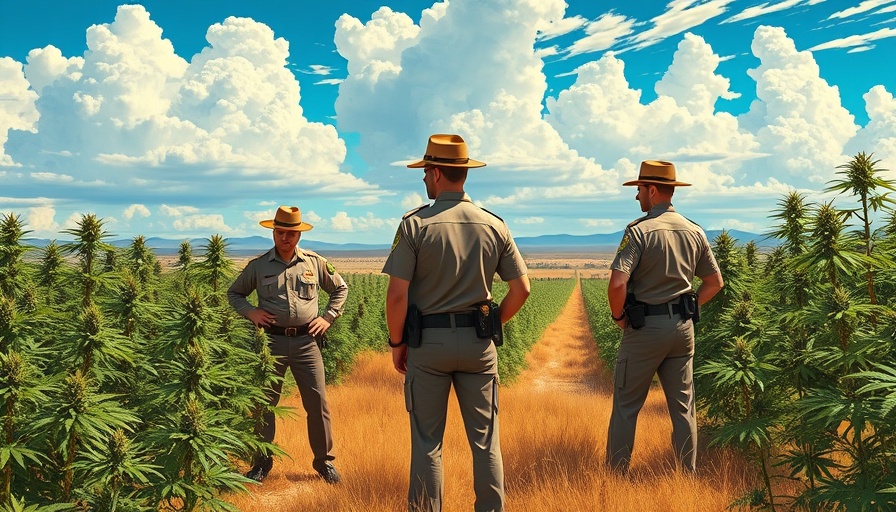
New Mexico's Bold Move: Hiring "Weed Cops" to Enforce Cannabis Laws
New Mexico is stepping up its game in cannabis regulation with a groundbreaking initiative to hire certified peace officers to enforce cannabis laws more effectively. As the state navigates the emerging landscape of legalized cannabis, this move highlights a commitment to protect legitimate businesses and ensure consumer safety. The Cannabis Control Division, operating under the Regulation & Licensing Department, will recruit seven dedicated officers tasked specifically with identifying and cracking down on illicit cannabis operations.
A Shift in Enforcement Strategies
Previously, the enforcement of cannabis laws relied heavily on civil fines and referrals to local law enforcement. However, with the passage of House Bill 10 in March 2025, New Mexico will have the power to take more direct action against unlicensed grows, including the authority to issue criminal charges and execute search warrants. This is a significant transition that emphasizes proactive measures rather than reactive solutions in combating unauthorized cannabis activities.
The Implications for Licensed Growers
Governor Michelle Lujan Grisham has publicly supported this legislation, noting its importance for protecting licensed operators from unfair competition posed by illegal producers. Stakeholders in the cannabis industry argue that this enhanced enforcement will create a level playing field. However, the move has sparked conversations about balance, as some critics worry that aggressive policing may inadvertently burden smaller growers who struggle with the complexities of licensing.
Looking Ahead: The Recruitment of "Weed Cops"
The state plans to start the recruitment process shortly, with funding sourced from existing cannabis regulatory budgets. The governor’s signature on the bill is anticipated soon, indicating that New Mexico is on track to implement these new measures in a manner that fosters both growth and safety in the cannabis industry. This proactive strategy sets a precedent that other states may look to emulate as they shape their own cannabis enforcement policies.
 Add Row
Add Row  Add
Add 




Write A Comment